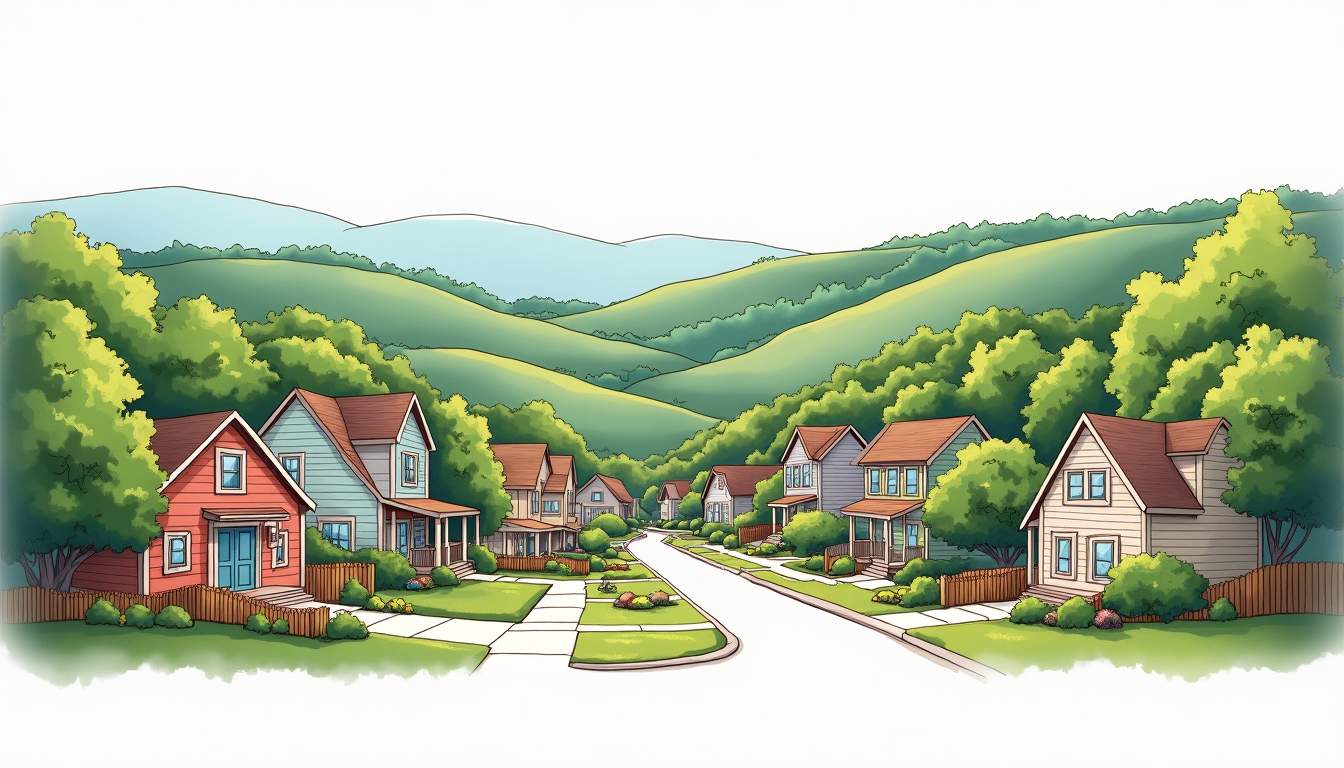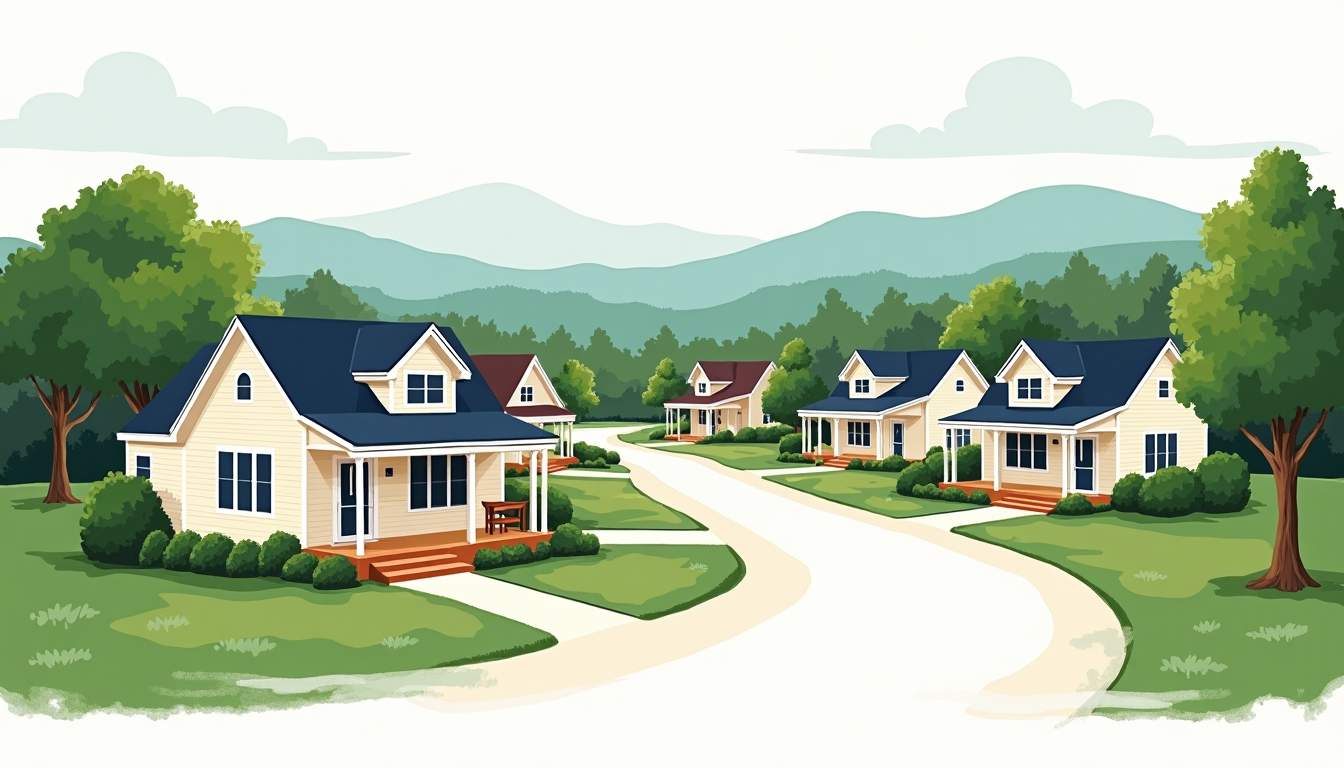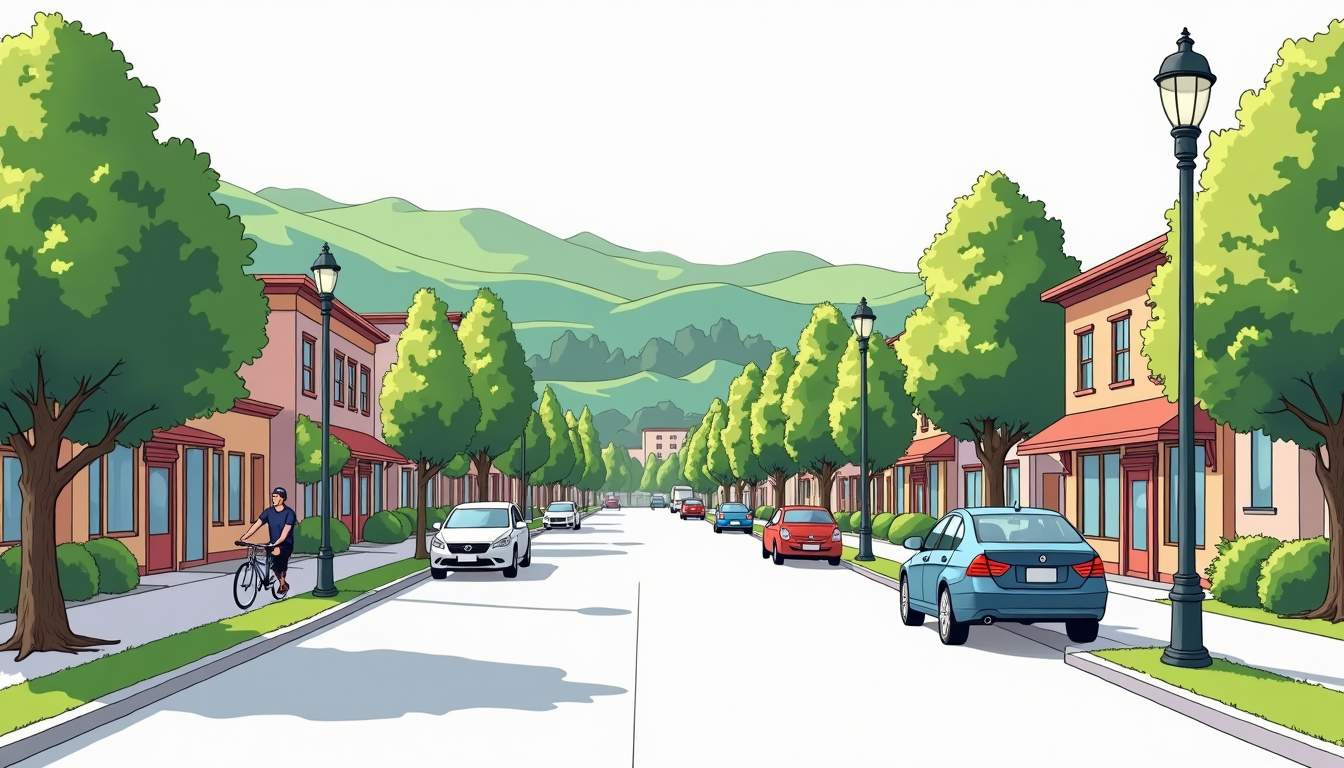
East Tennessee is increasingly popular among retirees looking for affordable housing, scenic beauty, and a relaxed pace of life without sacrificing access to medical care, cultural activities, and modern conveniences. This guide examines neighborhoods, current price ranges, and the amenities retirees prioritize, helping prospective buyers and their families make informed decisions.
East Tennessee offers a compelling mix of low property taxes, mild four-season climate, and proximity to the Appalachian Mountains. Towns here balance small-town friendliness with the conveniences of larger cities, making transitions into retirement smoother for those moving from suburban or urban environments.
Outdoor recreation is a major draw: hiking, boating, and state parks are within easy reach of many communities. Cultural amenities—live music, local festivals, farmers markets—add to the quality of life, while universities and medical centers in the region provide stability and resources that support a senior population.
Additionally, the cost of living in East Tennessee tends to be more affordable than the national average, allowing retirees to stretch their retirement savings further. The region’s welcoming communities often have active retiree groups and clubs, fostering social connections and opportunities for engagement. The area’s rich history and heritage are also celebrated through numerous museums and historic sites, offering enriching experiences for those interested in exploring the local culture more deeply.
Transportation options are diverse and accessible, with several regional airports and well-maintained highways facilitating travel near and far. This accessibility is particularly appreciated by retirees who value frequent visits from family or the chance to travel easily themselves. Moreover, the healthcare infrastructure is robust, with numerous specialists and geriatric care providers offering high-quality services, ensuring that seniors’ health needs are well-supported over time.
Neighborhoods that cater to retirees vary by lifestyle preference: active outdoors, historic charm, golf communities, or quiet suburbs with walkable downtowns. The following neighborhoods represent a range of options across East Tennessee, from the foothills near Knoxville to the lakeside villages and mountain towns.

Farragut is a family-oriented suburb west of Knoxville known for excellent schools, but its low-maintenance neighborhoods and plentiful parks appeal to retirees as well. Many single-level ranch homes, newer townhomes, and zero-step entry houses are available, attracting those who want a balance of quiet residential streets and nearby shopping and dining.
Residents benefit from close access to family-owned shops, multiple parks such as The Park at Turkey Creek, and a short drive to Knoxville for cultural events. Typical prices for well-maintained single-family homes in desirable areas often range from mid $300s to high $500s, while townhomes and condos can be found from the low $200s upward.
Oak Ridge mixes history, green space, and a robust community culture. Originally developed during World War II, the city evolved into a science and technology hub, offering educational programs, museums, and a surprisingly walkable downtown. It attracts retirees who appreciate a quieter setting with intellectual and cultural outlets nearby.
Housing in Oak Ridge includes mid-century ranches, updated bungalows, and newer subdivisions. Prices are generally more affordable than some Knoxville suburbs, with many options in the $200k–$350k range for single-family homes, and lower prices for condos and smaller homes.
Maryville and neighboring Alcoa offer historic downtowns, a strong sense of community, and easy access to the Great Smoky Mountains National Park. These towns are ideal for retirees who want small-town life with the amenities of a regional hub. Maryville’s downtown plaza and annual events provide social opportunities without long drives.
Real estate options include new developments with single-floor plans and traditional homes with larger lots. Prices vary, but attractive single-family homes are commonly available in the $250k–$400k range, depending on size, age, and proximity to downtown districts.
For those seeking a mountain retreat, Gatlinburg and Pigeon Forge offer a unique lifestyle centered on outdoor recreation and a thriving tourist economy. Retirees drawn to short-term rental potential or a vibrant arts scene might find these towns appealing, although the high volume of visitors affects the pace of life.
Housing ranges from cozy cabins and condos to larger homes with scenic views. Prices for retirement-friendly properties that offer easy maintenance can vary widely—condo units might start in the $150k–$250k range, while well-appointed cabins or homes with acreage can climb significantly higher based on location and amenities.
Chattanooga and its suburbs have become popular with retirees thanks to a revitalized downtown, growing arts community, and an active outdoor culture along the Tennessee River and surrounding ridges. Lookout Mountain provides panoramic views and a quieter atmosphere, while Hixson maintains a more suburban feel with lower price points.
Homes on Lookout Mountain are often pricier due to views and older, historic properties, while Hixson offers more accessibility and affordability. Single-family homes that are retirement-friendly commonly fall between $250k and $450k depending on condition and location.
East Tennessee's real estate market tends to be more affordable than many parts of the country, but local variations are significant. Proximity to major hospitals, downtown amenities, and mountain or lake views drive higher prices. Conversely, small towns and older neighborhoods can offer exceptional value.
Overall trends show modest appreciation rather than volatile spikes. Inventory levels vary seasonally and with local employment conditions. For retirees on a fixed income, focusing on stable, walkable neighborhoods with access to healthcare and services can protect against future resale fluctuations.
Condos and townhomes: Expect to find condos and townhomes suitable for retirees from around $150k to $300k in many areas. These units often offer low maintenance responsibilities and sometimes include community amenities like pools or fitness rooms.
Single-family homes: The bulk of retirement-friendly single-family homes fall between $200k and $500k, depending on condition and location. Lower-priced options often need modest updates, while higher-priced homes provide updated kitchens, primary suites, and low-maintenance yards.
East Tennessee generally costs less to live in than many coastal areas. Property taxes vary by county but are typically lower than the national average. Utilities and home services also tend to be more affordable, though heating costs in winter should be considered, particularly for mountain properties.
Beyond the house itself, retirees weigh neighborhood amenities heavily. Access to healthcare, grocery stores, public transportation, fitness options, and social or educational activities can determine long-term satisfaction with a community.
Close proximity to hospitals and specialists is often a top priority. Cities like Knoxville, Chattanooga, and Johnson City host major medical centers and specialized care. Smaller towns frequently have urgent care centers and reliable primary care, with large hospitals reachable within an hour’s drive.
Parks, walking trails, senior centers, and community education programs enhance daily life. Many neighborhoods have active homeowner associations or community groups offering clubs, events, and volunteer opportunities that help build social networks after retirement.
Walkable downtowns with cafés, theaters, art galleries, and farmers markets add vibrancy to retirement life. Communities with a strong local food scene and year-round events provide ongoing entertainment without long travel times.
Reliable transportation options matter, whether driving one’s own car or relying on public services. Many East Tennessee towns are car-dependent, but some cities offer public transit, rideshare options, and community shuttle services tailored for seniors.

When evaluating homes, prioritize properties with easy parking, minimal stairs, and proximity to key services. Single-level homes, homes with main-floor primary suites, and properties with elevators or potential to install ramps will be easier to manage over time.
Access to emergency services is a practical consideration. Major medical centers in Knoxville, Chattanooga, and Johnson City offer trauma centers and specialty care. Smaller hospitals and urgent care centers are distributed throughout East Tennessee, providing reasonable response times in most communities.
Researching local ambulance response times, hospital ratings, and the availability of in-home healthcare services helps form a clearer picture of whether a neighborhood will meet long-term health needs.
Retirees often face choices about downsizing, accessing home equity, or buying with cash. Working with a local real estate agent experienced with senior clients can clarify financing options like reverse mortgages, bridge loans, and VA benefits if applicable.
Home inspections should include checks for aging roof systems, HVAC, plumbing, and potential hazards that could become costly to repair. An accessibility assessment can help identify modifications needed to age in place, such as grab bars, widened doorways, and ramp installations.
While many retirees plan to age in place, it’s prudent to research assisted living and memory care options in preferred communities. Understanding waitlists, costs, and the availability of in-home care providers can prevent rushed decisions during a health crisis.
Start with a list of non-negotiables: distance to family, healthcare access, climate preferences, and price range. Visit neighborhoods at different times of day to assess noise, traffic, and community activity. Speak with neighbors, local business owners, and healthcare providers to get a feel for the area.
Budget for moving costs, home modifications, and a contingency fund for unforeseen repairs. Use a local title company and real estate attorney where customary, and keep important documents organized in advance of closing.
East Tennessee offers a diverse set of neighborhoods for retirees, from lakeside cottages and mountain cabins to suburban ranches and walkable downtowns. The combination of affordable housing, scenic landscapes, and solid access to healthcare makes the region attractive for retirement living.

Choosing the right community requires balancing lifestyle preferences with practical considerations like access to medical care, maintenance needs, and long-term affordability. With thoughtful planning and local guidance, East Tennessee presents many opportunities for a fulfilling retirement lifestyle.
Looking for a retirement community that combines scenic beauty, modern amenities, and an active lifestyle? Tennessee National offers all this and more within a premier gated community. Enjoy access to a Greg Norman Signature Golf Course, private marina, waterfront dining, and over 20 member amenities designed to enhance your retirement experience. Whether you want a move-in ready home or a custom build, Tennessee National provides the perfect setting to create lasting memories. Schedule a Private Tour today and explore the exceptional lifestyle that awaits you.